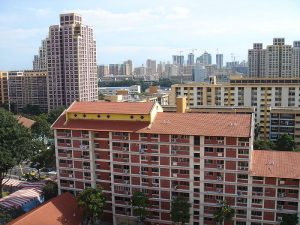Given that death is an unavoidable certainty in life – it is important to understand “What happens to my property when I die?”
Before one signs on the dotted line of property ownership, it is prudent to understand the full legalities. A perennial question that has cropped up is – what happens to my property if I die? Given that death is an unavoidable certainty in life, this is an important matter to understand. While having a will leads to some certainty, there may still be niggling issues (set out below).
Tenancy in Common or Joint Tenancy?
How my property will be treated after death depends firstly on how the property was held.
Table of Contents
Given that most people live in properties with shared ownership, I will tackle that first.
If you co own a property with someone, the ownership will be either via a joint tenancy (where co-owners hold equal interest in the property) or a tenancy-in-common (where each co-owner holds a separate and distinct share in the property).
Joint Tenancy
In a joint tenancy, the surviving co-owner(s) will inherit the property. Take for example if Mr and Mrs Tan have a joint tenancy and Mr Tan predeceases Mrs Tan, Mrs Tan will inherit Mr Tan’s share and own the entire property. If Mr and Mrs Tan plus their daughter, Miss Tan, own the property through a joint tenancy and Mr Tan predeceases them both, Mrs Tan and Miss Tan will inherit his share jointly and hold the joint tenancy between them both. When Mrs Tan in turn predeceases Miss Tan, Miss Tan will inherit the entirety of the property.
Tenancy in Common
If it is a tenancy-in-common however, the situation will be slightly different. The surviving co-owner(s) in this case will not inherit the decease’s share in the property as a matter of law. The deceased’s share will be distributed in accordance with his or her will or in accordance with the laws of intestacy in the absence of a will.
Using the Mr and Mrs Tan example as above, if Mr Tan predeceases Mrs Tan, his share will not automatically go to Mrs Tan. If Mr Tan has a will, his share in the property will be given to whoever he stipulates in his will. So, if Mr Tan provided in his will that his share will go to their daughter Miss Tan, it would mean that Mrs Tan will now own the property in conjunction with Miss Tan. In the event that Mrs Tan predeceases Miss Tan, it does not automatically mean that Miss Tan will get the entirety of the property. If Mrs Tan decides to will her share in that property to a cat charity, Miss Tan will end up owning that property with the cat charity. Practically speaking, this means that either party will have to buy the other out or the property will have to be sold and proceeds divided.
If there is no will, things for my property will be decided via the laws of intestacy.
Intestacy
In a nutshell, this is how it will work – if the owner is single, the property goes to their parents. If married, it goes to their spouse and children. If they don’t have children, then their parents will get half and their spouse gets half. (If you are Muslim however, this will not apply to you. You will need to speak to a Sharia law practitioner)

Most HDB flats in Singapore are bought under the joint tenancy scheme. In the event of death the remaining joint owners will need to approach the HDB to prepare and lodge the Notice of Death. This will incur some registration and conveyancing fees. The following documents will be required:
- Identity cards of remaining joint-owners
- Original death certificate of deceased owner
- Evidence of estate duty clearance for deceased owner’s estate (for death occurring before 15 February 2008)
- Duplicate lease (if any)
What happens to the remaining loan on a private property?
Sadly, you cannot inherit a property without also inheriting the loan. So, if the deceased still owes the bank money, the beneficiaries (be they joint owners or tenants in common) will also inherit the debt along with the property. If they cannot service the loan, the bank has the first charge over the property and will have a right to sell it. In other words, if you cannot take over the remaining mortgage, you cannot inherit the property.
For people considering property ownership, they would be well advised to consider buying mortgage insurance to ensure that their mortgage is taken care of in the unfortunate event of an unforeseen death. This alleviates concerns of aged parents or spouses and young children being kicked out of a family home
What happens to the remaining loan on a HDB flat?
Most people will be using their CPF to service their HDB housing loans If so, you will be required to buy into the Home Protection Scheme (HPS). If you are covered by the HPS, then the insurance will pay off the loan which will negate concerns of a grieving spouse or children being booted out of the family home.
It is important to remember however that even if the loan is covered, prevailing HDB home ownership rules will still apply.
For example, you can only own one HDB flat at any given time. So, if a parent leaves their flat to their children and their children already own their own flats, they will not be able to inherit their parent’s flat unless they sell their own flat. If they choose to sell their parent’s flat instead, the proceeds of the sale will be distributed in accordance with either the will (if there was one) or the rules of intestacy (if there was no will).
*This does not constitute legal advice. Readers should sought independent legal advice.






